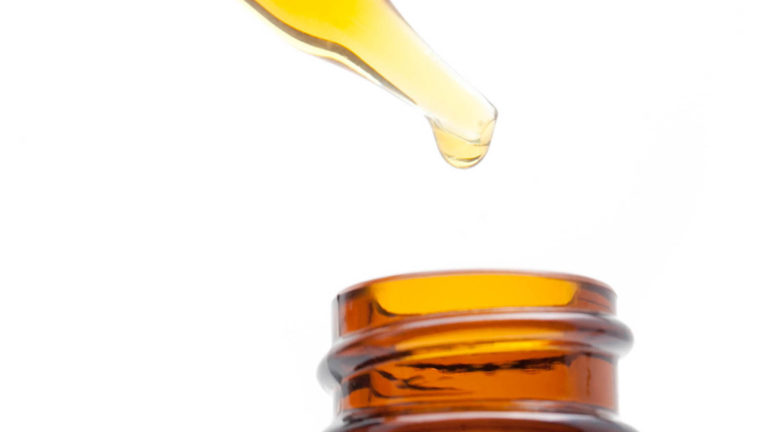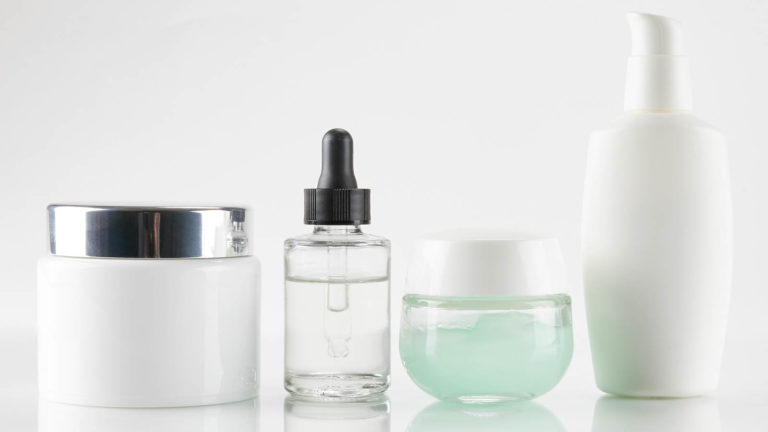CBD laws in Minnesota have been updated since the passage of the Hemp Farming Act of 2018. Although CBD products derived from hemp are widely available in Minnesota, it has been deemed illegal to market CBD products with the intention of preventing, curing, or treating diseases. .
Efforts to create regulatory frameworks around hemp and CBD are ongoing. The Minnesota Board of Pharmacy oversees all drug regulations, and thus is in charge of establishing rules for hemp-derived CBD products, in addition to medical marijuana products already on the market.
CBD products that meet the current labeling and testing requirements are permitted under state law. These products must still meet FDA criteria, however, which currently prohibits the sale of CBD in food or drink, and has yet to release official rules and regulations.
Medical marijuana was legalized in Minnesota in 2014, although the program is limited. CBD derived from cannabis is available for qualifying patients in liquid, capsule, or vaporized format. Adult-use cannabis is illegal.
What is CBD?
CBD is a non-intoxicating cannabinoid found in cannabis. After tetrahydrocannabinol (THC), cannabidiol (CBD) is the second-most abundant cannabinoid in the plant, and has many potential therapeutic benefits, including anti-inflammatory, analgesic, anti-anxiety and seizure-suppressant properties. CBD can be sourced from both marijuana plants and hemp plants, which are legal in most countries as they contain minuscule amounts of THC.
Combine THC and CBD to fully employ the entourage effect; THC and CBD work hand-in-hand to amplify each others' effects.
 Photo by: Gina Coleman/Weedmaps
Photo by: Gina Coleman/WeedmapsImage lightbox

Why is CBD sometimes illegal?
All types of cannabis, including hemp strains that don't produce enough THC to cause intoxication, were considered illegal under the Federal Controlled Substances Act of 1970. The law categorized all cannabis as Schedule I, which defined the plant as a highly addictive substance with a high potential for abuse and no accepted medical use.
The Hemp Farming Act of 2018l re-classified hemp as an agricultural commodity and made its cultivation federally legal. Further, the act removed some forms of cannabis from Schedule I status by creating a legal distinction between hemp and marijuana. Hemp is cannabis with less than .3% THC, and marijuana refers to cannabis with more than .3% THC. This distinction in federal law effectively legalized CBD that is derived from cannabis with less than .3% THC, as long as it has been cultivated according to federal and state regulations. The 2018 Farm Bill legislation does not mean that CBD derived from hemp is universally legal throughout the United States. According to the Farm Bill, the Food and Drug Administration (FDA) has the power to regulate CBD product labeling, including therapeutic claims and the use of CBD as a food additive.
The FDA has declared that hemp-derived CBD may not legally be added to food and beverages, or marketed as a dietary supplement.Although the organization has begun to re-evaluate some of these stances on legal CBD products, the FDA has not revised its regulations. The agency also has been strict in its position against any labeling that could be perceived as a medical claim about CBD.
In addition to federal regulation of CBD, the Farm Bill also gave states the option to regulate and prohibit the cultivation and commerce of CBD. States may also regulate CBD in food, beverages, dietary supplements, and cosmetic products independently of the FDA's final ruling.. Minnesota is currently developing its own legal guidelines regarding the production and sale of CBD, but presently maintains a stance informed by FDA directives.
Minnesota CBD laws
The cultivation of hemp has been legal for research purposes in Minnesota since 2015. The Minnesota Industrial Hemp Development Act (IHDA), informed by the 2014 Farm Bill, permitted the Minnesota Department of Agriculture (MDA) to develop a Hemp Pilot Program. The MDA Hemp Pilot Program is in effect in Minnesota until the USDA approved the Minnesota state hemp plan.
The legal definition of industrial hemp was updated by the Minnesota Legislature in 2019. Hemp is considered any part of the Cannabis sativa L. plant, growing or not, including the plant's seeds, derivatives, extracts, cannabinoids, isomers, acids, salts, and salts of isomers, with a THC concentration of more than .3% on a dry weight basis.
CBD legislation in Minnesota falls under the jurisdiction of the Minnesota Board of Pharmacy. At present,CBD derived from hemp is illegal in Minnesota when placed into a product intended for consumption. CBD is also illegal when sold as a product intended to prevent, cure, or treat a disease, or alter the structure or function of human or animal bodies. These prohibitions are in line with the FDA directives that CBD cannot be sold in food, drink, or make therapeutic claims.
CBD products in Minnesota that meet state labeling and testing requirements are permitted under state law and can be sold in pharmacies.There are no Minnesotan laws that prohibit the sale of topical CBD products, such as lotions, balms, or salves, although it follows that such products must meet state and FDA labeling and testing requirements.
 Photo by: Gina Coleman/Weedmaps
Photo by: Gina Coleman/WeedmapsImage lightbox

Those who wish to acquire CBD derived from cannabis must first qualify with a physician's recommendation, then register as a medical cannabis patient under the Minnesota Medical Cannabis Program.
Licensing requirements for CBD
Individuals and businesses hoping to grow and process hemp in Minnesota must acquire licenses under the Minnesota Department of Agriculture Hemp Program. The MDA Pilot Program will be in effect until the USDA has approved the new state plan.
First-time applicants must submit an application,pay the appropriate program fees, and pass a federal and state criminal background check. Those with controlled substance-related convictions in the last ten years are disqualified. Returning applicants must also submit an application and pay the program fees. Each license granted expires on the 31st December of the year of issue.
MDA inspectors inspect fields within 30 days of harvest for testing. Crops with more than .3% THC content will be destroyed.
Minnesota CBD possession limits
There are no limits on how much hemp-derived CBD a person can possess in Minnesota.
There are limits for cannabis-derived CBD products for medical marijuana patients. Eligible patients can possess up to thirty days of supply.
Non-eligible individuals found in possession of less than 42.5 grams of cannabis-derived CBD may face charges and fines up to $200, and may be required to enter a drug education program.
Where to buy CBD in Minnesota
CBD products are widely available throughout Minnesota, although some of these products may be considered illegal under present state legislation. Retailers include head shops, convenience stores, health food stores, pet stores, restaurants, cafes, coffee shops, and a rapidly-growing number of CBD-specific retailers.
 Photo by: Gina Coleman/Weedmaps
Photo by: Gina Coleman/WeedmapsImage lightbox

CBD derived from marijuana is only available from one of eight approved cannabis patient centers.
Shopping online for CBD represents another option for purchase. Consumers can buy from a wide variety of online outlets for CBD products, read consumer reviews, and ship purchases to their homes.
Online shopping also offers the ability to gather detailed information about each product, compare different products and product types, and comparison shop for the best price. CBD brands often also have their own e-commerce shop, allowing you to purchase your desired CBD products straight from the source. Find more reputable CBD companies on Weedmaps.
How to read CBD labels and packaging
The 2018 Farm Bill shifted the oversight of hemp and hemp-derived products from the U.S. Department of Justice (DOJ) to the U.S. Food and Drug Administration (FDA). The FDA currently does not presently allow CBD-infused food, drinks, or dietary supplements to be sold, and hasn't yet provided regulations for hemp-derived CBD products.
Still, the agency warns that regulations in flux still require companies to make legitimate claims on their labels. Buyers should nonetheless approach CBD products with caution. Most reputable CBD producers typically include the following information on their CBD product labels:
- Amount of active CBD per serving.
- Supplement Fact panel, including other ingredients.
- Net weight.
- Manufacturer or distributor name.
- Suggested use.
- Full-spectrum, broad-spectrum, or isolate.
- Batch or date code.
One of the most important things to pay attention to is whether a CBD product is full spectrum, broad spectrum, or isolate.
Full spectrum means that the CBD has been extracted from a hemp plant along with all other cannabinoids and terpenes, including whatever trace amounts of THC the plant may have produced. Consuming full-spectrum CBD may yield better results thanks to the entourage effect, a phenomenon in which the mixture of cannabinoids and terpenes work together to produce a more pleasant experience.
Broad spectrum means that the product contains CBD and terpenes, but has undergone additional processes to strip out any THC.

